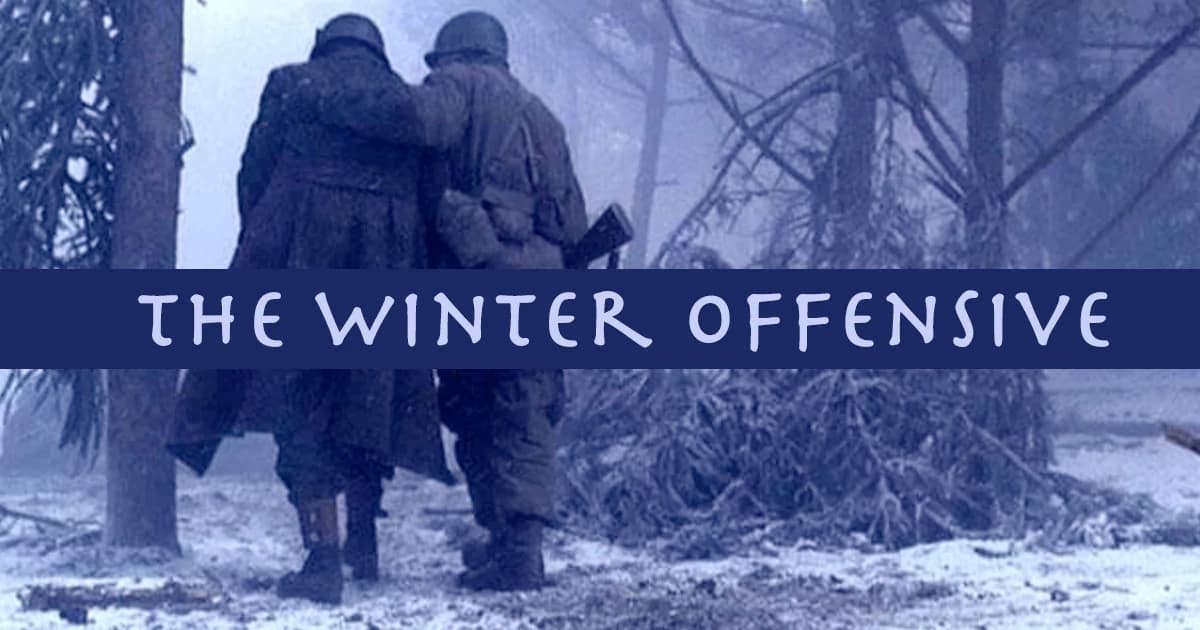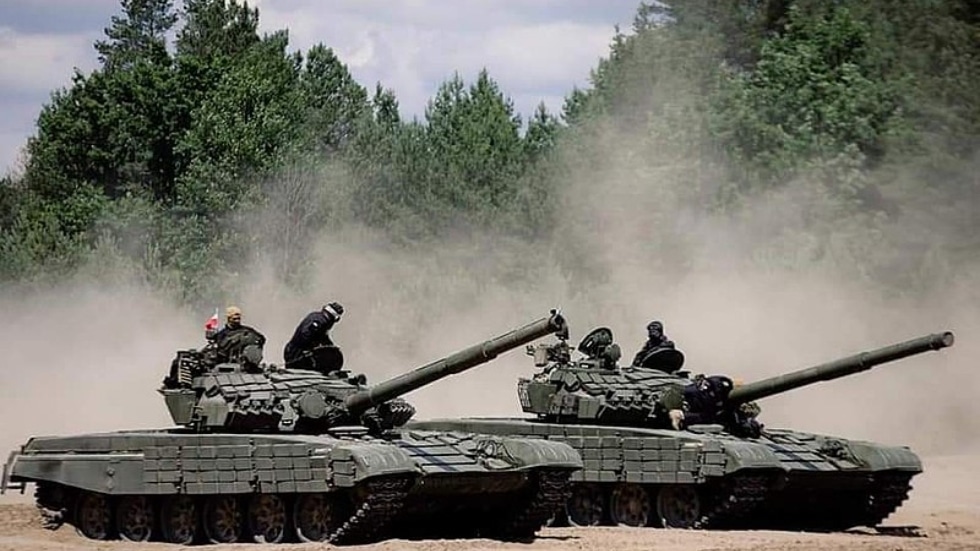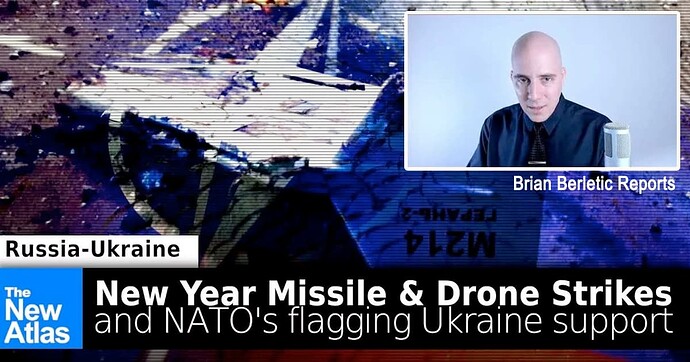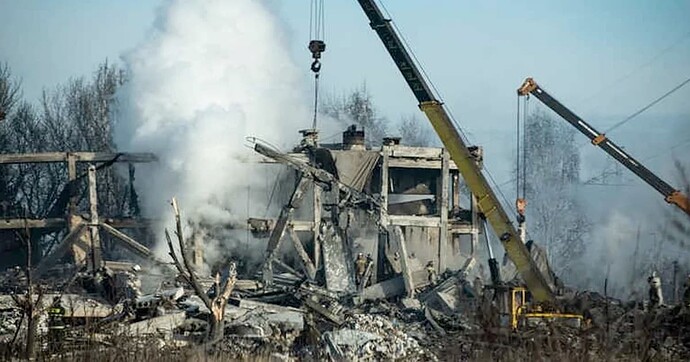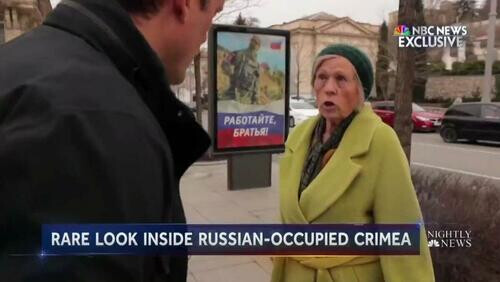
Bullet Points: Scott Ritter - unnamed US intelligence source 'Russian Rocket Hit Polish Soil'

Bullet Points: Scott Ritter - unnamed US intelligence source 'Russian Rocket..
3:21 min.
Propaganda.
Ukrainian soldier has just suffered a chemical attack.. luckily the cameraman was immune.
Why Putin’s Winter Offensive Will Prompt US Entry Into the War
Please read and share this article on Gibraltar Messenger. Thank you.
There’s a mad dog pulling at his chain
A hint of danger in his eye
Alarm bells raging ’round his brain
Roger Waters
So “Ze” aka “Zelia” came to DC and was given a massive welcome by the US Congress. The last time a foreign leader was treated as if he was the US President was was Bibi Netanyahu spoke to Congress. The fact that war criminals and crooks Zelia and Bibi got such a treatment tells you everything you need to know about who really runs the US Congress.
Congress, by the way, decided to act like the gang highway robbers it is and declared that it will “confiscate” (which implies a legal authority, if not it is called “steal”) Russian assets, thereby fulfilling Putin’s “prophecy” made in 2013 when he warned the Russian business community that its assets in the West would be stolen and that they would spend years trying to get them back.
It makes me wonder if the imbeciles in Congress understands what fulfilling this prophecy will mean for the USA as a jurisdiction to keep your assets in?
Then there is this: the Hyena of Europe is preparing for a mobilization which further indicates that it is about to try to bite off some piece of the Ukraine under the guise of some kind of (pseudo) “peacekeeping” or even “protection” mission which would not officially be a NATO operation, but which will be run out of Mons just like the entire Ukrainian military has been for a long while now.
Just as I was writing this, Gonzalo Lira just posted a (very good) video about this, check it out:
2022.12.23 Will Poland Be The Next Proxy—I Think Yes
Now for a small piece of (possibly) good news, Biden has declared that US “partners” are “are not looking for a Third World War”. I would not make too much of this, since Biden is mostly unaware of the reality around him, and he is probably not privy to the decision-making of the real powers, the “collective Biden” which run the USA. Next, Biden, like all US Presidents, is a professional liar, so again, let’s not celebrate quite yet. Finally, this might be a feint (but if so, it won’t impress anybody in Russia).
So what is “the plan”?
Frankly, I don’t believe that there is one.
Since Dubya and Obama the White House has been occupied by weak and frankly clueless leaders, hence the various interests groups which control DC run “their own foreign policy”. So, like vectors, the various goals and means of the key actors add up to create a “sum vector” which can look like “a policy” or “a plan”, but it is no such thing. What is true of the US is even MORE true for NATO. Hence the Poles pulling at their chain like rabid dogs to the horror of the comparatively sane(er) Europeans.
I fully agree with Andrei Martyanov – the folks in charge in the West are totally clueless and they have absolutely no idea how to walk away from the mess they created. The Neocons probably would prefer a worldwide nuclear war to a Russian victory, but non-Neocon actors might not want to die for a sick, narcissistic, gang of ignorant yet self-worshiping thugs.
Who will prevail?
I have absolutely no idea. I am not sure anybody else knows either.
What I do know is that Russia has been preparing non-stop for a full-scale continental war since at least 2014 (see here for details). Defense Minister Shoigu has declared that next year Russia will add five new artillery divisions, eight bomber aviation regiments, one fighter regiment, three motor-rifle divisions, two air-assault divisions, and six army aviation brigades to the Russian armed forces! And, by the way, these “artillery divisions” will be what is called “high power” brigade/division in Russia, that is to say that they get the very heavy weapons, like 203mm and 240mm self-propelled mortars. Something which the newly recreated First Guards Tank Army (a “Shock Army” in Russian military terminology) would need to further increase its huge firepower power.
And did I mention that Russia has fully modernized her nuclear triad and that key weapons factories in Russia are now working for 6 days weeks with 3 shifts working non-stop?
And those of you who follow Andrei Martyano’v blog also know how ubiquitous (true) hypersonic weapons are becoming the Russian armed forces.
Let’s just say that such firepower is total overkill for the Ukraine, so we can safely conclude that the Russian force planners did not have Banderastan but NATO in mind when they decided what type of forces Russia should develop next…
So far NATO has done a lot of tough talking, but it is pretty clear that (besides the rabid Poles) few Europeans have the stomach for a full-scale continental war in Europe which will leave their country in ruins. Yet, they are terrified of the US Neocons and therefore only can try to silently drag their feet while they are being dragged by the Neocons to the precipice.
And now, for some week-end music, I want to share with you the beautiful song “Wide River to Cross” (composed by Buddy & Julie Mille) in two versions:
Diana Krall with Jerry Douglas on the dobro:

Diana Krall Wide River To Cross with Jerry Douglas on dobro
and a very moving version by Roger Waters and US veterans (to whom, Roger, in his typical kindness, shows compassion and love, as he – correctly – identifies them as victims of the evil US imperialism he so often denounces. Enjoy!

Roger Waters & Vets - Wide river to cross
Lyrics:
There’s a sorrow in the wind
Blowing down the road I’ve been
I can hear it cry while shadows steal the sun
But I cannot look back now
I’ve come too far to turn around
And there’s still a race ahead that I must run
I’m only halfway home, I’ve gotta journey on
To where I’ll find, find the things I have lost
I’ve come a long long road but still I’ve got some miles to go
I’ve got a wide, a wide river to cross
I have stumbled, I have strayed
You can trace the tracks I made
All across the memories my heart recalls
But I’m still a refugee, won’t you say a prayer for me?
‘Cause sometimes even the strongest soldier falls
I’m only halfway home, I’ve gotta journey on
To where I’ll find, I’ll find the things I have lost
I’ve come a long long road but still I’ve got some miles to go
I’ve got a wide, a wide river to cross
I’m only halfway home, I’ve gotta journey on
To where I’ll find, I’ll find the things that I have lost
I’ve come a long long road but still I’ve got some miles to go
I’ve got a wide, a wide river to cross
I’ve got a wide, a wide river to cross
...
NATO and the US are sourcing tanks from Morocco... "a big no no politically" - Gonzalo Lira. Looks like they are doing just that.
...
The United States and the Netherlands are set to buy dozens of T-72 tanks from Morocco and then forward the weapons on to Ukraine, in a deal negotiated in secret between Washington and Rabat. Notably, the move marks a deviation from Morocco’s neutral stance toward the conflict with Russia.
Under the agreement, the US and the Netherlands will buy 90 T-72B Main Battle Tanks for $95 million, and there is an option to add 30 tanks to the sale next year. Rabat will provide spare parts, and the tanks will be upgraded by Excalibur, a Czech military contractor.
Though Morocco owns the vehicles, at least some are already undergoing upgrades in the Czech Republic. The first five tanks will be sent out next week, while Excalibur plans to ship 18 T-72s by the end of the year, according to the company’s commercial director Richard Kubena. The Czech Ministry of Defense confirmed the sale in a statement, saying “the final customer has satisfied the request of the above-mentioned countries and considers the agreement reached on the transfer of tanks (in exchange for other equipment) as assistance to the government of Ukraine.”
Morocco will become the first African nation to provide weapons to Kiev, but was previously hesitant to support any side in the Russo-Ukrainian war. In March, Rabat abstained from a UN vote that condemned the Russian invasion of Ukraine. According to reports by Military Africa and the Center for European Policy Analysis (CEPA), the United States played a key role in facilitating the T-72 agreement, though Rabat has yet to confirm the transfer.
Morocco buys 91% of its arms from American suppliers, and Washington is a key backer of Rabat’s claim over Western Sahara – where some 500,000 people currently live under Moroccan military occupation.
Morocco’s claim to the disputed region has caused friction with its neighbor, Algeria. Rabat believes Algiers has strengthened ties with Moscow in recent months, and reportedly agreed to sell tanks bound for Ukraine as a way to spite Russia.
New Year Strikes Across Ukraine – Truth and Propaganda
Please read and share this article/video on Gibraltar Messenger. Thank You.
Russian issues update on deadly Ukrainian strike
Please read and share this article on Gibraltar Messenger. Thank You.
A UK intelligence firm linked to the Crimean Bridge bombing is reportedly deploying the software to plan attacks and killings
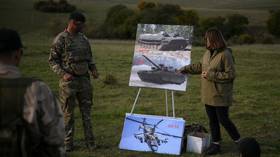
A British instructor teaches Ukrainian recruits about different types of Russian vehicles during a training course with the UK armed forces near Durrington, Britain, October 11, 2022 © AFP / Daniel Leal
A private company linked to terrorism in Ukraine is providing the British military with illegally-gathered smartphone data to aid the planning of attacks and targeted killings, The Grayzone reported on Tuesday.
According to files leaked to the outlet, the military is making use of data illegally harvested from cell phones in Russia and Ukraine by spy firm Anomaly 6 to enable “the planning of military offensives and artillery attacks, assassinations, asset recruitment, and other measures.”
Previous reporting by the Grayzone revealed that Anomaly 6 employees know their data scraping operation – which can target any smartphone in the world through code surreptitiously embedded in popular apps – is illegal. Britain’s military and intelligence apparatus would be forbidden from gathering this data themselves, but according to the latest report, the Anomaly 6 data is forwarded to them by a UK private military company, Prevail Partners.
[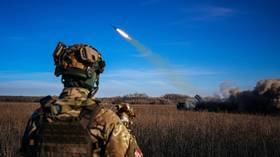
This arrangement allows the government to bypass oversight and “to gain a realtime/near realtime understanding of the disposition” of Russian “troops, equipment, and lethal materials,” which can then be fed to Kiev. While the US has stated that it limits its intelligence sharing with Ukraine, the UK has not acknowledged any restrictions on the data it hands over.
The unreliable nature of some of this smartphone data, coupled with the Ukrainian military’s willingness to execute so-called “collaborators,” could link London to “crimes against humanity” committed by Kiev against civilians, The Grayzone stated.
Prevail Partners has been implicated in helping the Security Service of Ukraine (SBU) to build an off-the-books “terror army” in Ukraine, and one of its founding members helped draw up plans for the UK to bomb the Crimean Bridge, shortly before it was damaged in a blast in September that killed four civilians.
Moscow accused the UK of involvement in "[the] training, preparation and execution” of the bridge bombing, and responded to the attack with repeated waves of missile and drone strikes against Ukrainian infrastructure and military targets.
The latest revelations raise “the question of how Britain can plausibly claim not to be a formal belligerent in the war,” author Kit Klarenberg wrote on Twitter.
Ukraine’s assassination of Daria Dugina, its destruction of the Crimean Bridge, and attempted murder of Russian State Space Corporation leaders Dmitry Rogozin and Artyom Melnikov may have all been made possible by Anomaly 6’s software and Prevail Partners’ links to the British government, he claimed in the article.
On March 5, 1946, Winston Churchill arrived in the small town of Fulton, Missouri.
Some seven months earlier, Churchill had been voted out of the office of prime minister that he had held for the five most tumultuous years in the history of Great Britain, during which the UK contributed to defeat Nazi Germany. Churchill was accompanied by Harry Truman, the former Missouri senator who had served as President Franklin D. Roosevelt’s vice president until Roosevelt’s passing on April 12, 1945 propelled him into the role of America’s commander in chief. Truman had arranged for Churchill to receive an honorary degree from Westminster College, after which the famously loquacious English politician would deliver an address.
The American president’s motivations were two-fold. First, he sought to lift the sagging spirits of a wartime ally whom he had only met in passing at the summit in Potsdam, Germany, in July-August 1945, after the surrender of Nazi Germany. Churchill had arrived in Potsdam distracted by the prospects of being voted out of office. He was deeply depressed, refusing to read the briefing documents his staff had prepared for him, resulting in lengthy and disjointed dialogue with his counterparts. Churchill’s fears were realized when, with the conference still in session, the results of the British elections were announced; Churchill had been defeated, and his place at the conference was taken over by the new British prime minister, Clement Attlee.
Churchill took the defeat poorly, sinking further into depression as his health failed him, leaving him struggling to find his place in the world. He vacationed in France, where he spent hours painting. Upon his return to Great Britain, Churchill busied himself by working on his wartime memoir. Despite his defeat as prime minister, Churchill remained a member of Parliament, and as such he was a leader of the opposition. Politics was in his blood, and eventually the former prime minister began to reengage in the affairs of his nation, which included casting a critical eye towards post-war relations with the Soviet Union, whose leader at the time, Joseph Stalin, Churchill openly mistrusted.
At the time Truman extended his invitation to Churchill, American policy toward its wartime ally, the Soviet Union, was in a flux. Stalin’s refusal to participate in the post-war dollar-dominated economy outlined in the 1944 Bretton Woods agreement was viewed by many as proof positive of the anti-Western proclivities of the Soviet Union. This posturing, when combined with angst over Soviet post-war policies in Poland, which both Truman and Churchill viewed as breaking with agreements reached during both the Yalta and Potsdam summits, had led to an overall environment of distrust and disengagement.
A speech delivered by Joseph Stalin on February 9, 1946 sent shockwaves through the American public, driven by media accounts which lambasted the presentation as “warlike,” despite the fact that it almost exclusively addressed domestic matters. An American diplomat in Moscow, George Kennan, initially shrugged off Stalin’s address as being routine in nature. However, upon receiving instructions from the US State Department to provide a more detailed analysis of the speech and what it said about Soviet attitudes toward the West, Kennan proceeded to write an 8,000-word report which became known as “the long telegram.”
The ”long telegram” was dispatched on February 22, and soon it became the talk of the town in Washington, DC. Churchill was in the United States vacationing in Florida when Kennan’s missive was written, and was subsequently invited to travel to the US Capitol to visit with Truman before heading to Fulton, Missouri. He was sequestered by the American president and his secretary of state, James F. Byrnes, to discuss the themes Churchill would present in his address. Both Truman and Byrnes were sensitive to the vagaries of American public opinion, which had not yet been turned against the Soviet Union and its leader, whom many Americans still considered an ally. By inviting Churchill to speak in Fulton, Truman hoped to use the famous Englishman’s oratory skills to his advantage, and help shape American attitude regarding the need for a more confrontational posture vis-à-vis the Soviet Union.
Churchill did not disappoint. In a speech he titled “The Sinews of Peace,” Churchill outlined his vision of post-war reality, one where the US and the British Commonwealth enjoyed a “special relationship” designed to guide the international community in confronting the growing threat posed by the Soviet Union. In typical fashion, Churchill crafted words which graphically captured his sentiments, including the following sentence, “From Stettin in the Baltic to Trieste in the Adriatic, an iron curtain has descended across the Continent,” which introduced the term “iron curtain” into the lexicon of American discourse regarding the Soviet Union.
The Iron Curtain speech, as it subsequently became known, was a defining moment in history, and has become known as the event which defined the start of what became known as the Cold War, an existential struggle defined more by ideology than force of arms between a Western world led by the “special relationship” between the US and Great Britain, and those lands ensconced behind the Iron Curtain that fell under the sway of the Soviet Union. Truman went on to use the themes set forth in Churchill’s speech and Kennan’s “long telegram” to craft a formal policy known as the Truman Doctrine, which was announced to the US Congress on March 12, 1947—nearly a year after Churchill’s landmark address. The policy announced as the primary goal of American policy the containment of Soviet power and influence around the world.
And so began the Cold War, born from the confluence of one man’s depression, and another man’s indecision. The irony, however, is that the aggressive policy of containment, based as it was on military power, was not something Kennan was advocating for when he wrote the “long telegram.” Kennan did not believe the Soviet Union to be either expansionistic or militaristic in its approach toward the West and was appalled when the Truman Doctrine became policy.
The policy journey that saw the “long telegram” transformed into the foundational doctrine of American containment policy, however, passed through Fulton, Missouri, where the words of Winston Churchill’s historic address served as an ideological forge, transforming Truman’s uncertainty over the state of relations with his erstwhile wartime ally into a stark determination to confront Soviet power which, thanks to Churchill, was subsequently deemed a threat to international peace and security.
Today, the United States and its allies find themselves on the cusp of a new “Cold War” with Russia. Unlike the original, which was born of the nexus between Churchillian depression and Truman indecision which twisted the intellectual musings of an American diplomat into a doctrine of global confrontation, the current Cold War is the byproduct of deliberate actions by those in the so-called “collective West” who seek to hold onto the post-war world shaped by the containment policies that defined the Cold War by resurrecting the same irrational fears that had been generated under Truman.
But the world was a different place during the original Cold War, defined by two different approaches toward global relations that were shaped by which side of the Churchillian Iron Curtain one resided. The United States and its allies were able to prevail for a number of reasons, including their ability to sow dissent within the ranks of the Soviet-dominated Eastern bloc, driving a wedge between Moscow and Beijing, and undermining Soviet influence and control over Eastern Europe.
Today, the world isn’t defined by a bipolar West-versus-East reality, but rather a more complex, and highly nuanced multipolarity, where the United States’ continued adherence to Cold War mentalities places it at a disadvantage when dealing with a world that has, for the most part, moved on from the limitations imposed by any articulation of an Iron Curtain. Indeed, America’s continuing embrace of Churchillian concepts has transformed the “Iron Curtain” into a self-imposed prison, isolating the United States from a growing global reality where the American singularity, enhanced by a “special relationship” with the United Kingdom, no longer reigns supreme. The British stopped being relevant years ago, and the allure of America as the “shining city on the hill” has long since faded.
The premise of the original Cold War was based upon a flawed perception of malign Soviet intent, the notion that Joseph Stalin was consolidating his power behind an ideological Iron Curtain until which time he could sortie forth and bring the rest of Europe, and by extension, the world, under his sway. Today, one can see the echoes of this Cold War mindset in the way so-called “Russia experts,” such as Michael McFaul and Fiona Hill, articulate the policies and posture of modern-day Russia and its leader, President Vladimir Putin. Just as a negative Soviet reaction to the global economic prescriptions of the Bretton Woods agreement led to George Kennan’s misinterpretation of Soviet intent, the Russian reaction to the expansion of NATO to its borders is likewise being misinterpreted—deliberately so—by McFaul, Hill, and others as a sign of Russian aggression.
The main difference between the present and the past is the fact that despite its flawed intellectual foundation, the original containment policy assiduously avoided having the Cold War”transition into a “hot” conflict. Today, while historians and current affairs analysts debate whether the current state of affairs between the US and Russia qualifies as a new Cold War, the aggressive containment-based policies that are manifest in the expansion of NATO have morphed away from restraining Russia, to defeating Russia. As such, the Russian-Ukrainian conflict that has resulted from this aggressive expansion of NATO has transformed into a proxy “hot war” between Russia and the US-led NATO alliance, which is unlike anything experienced during the Cold War. As such, the current state of US-Russian relations is not defined by competing ideologies, but rather brute-force politics, where one side (the US) seeks the physical destruction of the other (Russia).
This is the legacy of Churchill’s famous address, where Cold War rhetoric has transformed into post-Cold War conflict. The only good news is that US power and prestige today is but a shadow of what it was when the Cold War originated. Back then, the allure of US democracy marketed using the Bretton Woods-enhanced dollar-dominated global economy was real. Today, American democracy has been exposed as a flawed dream which, in many ways, manifests itself as a nightmare. The "Iron Curtain" has been transformed into an American “Rust Belt,” where the promise of the past has failed to meet the expectation of the present.
The fact is, there will be no “Cold War 2.0,” if for the simple fact that the world will not allow it. Rather than enabling a modern-day variation of the Churchillian ideological divide envisioned in his Iron Curtain speech, the international community seems to prefer to resolve the differences between Russia and the collective West in a more deliberative fashion, choosing compromise over conflict.
All that is needed is for the US-led collective West to recognize the reality of the world today, and drop the pretense of Cold War posturing built on Winston Churchill’s flawed and dated oration. Sadly, the ongoing tragedy that is unfolding in Ukraine today is proof positive that such a realization has yet to be reached. The consequences of this failure are real, and meaningful, and are propelling US-Russian relations on a trajectory which bypasses the niceties of Cold War containment, into the horrors of Hot War conflict.
NBC Reporter Goes To Crimea, Shocks Viewers By Telling The Truth
Video in the Zerohedge article:
NBC News chief international correspondent Keir Simmons went to Sevastopol, surrounded by a significant Russian military presence given it is home to the Russian Navy's Black Sea Fleet, and in a live segment admitted that it's not at all realistic Zelensky and Ukrainian forces can ever hope to take Crimea.
This is especially as the "the people there... view themselves as Russian."
"It is a very, very dangerous standoff.. it's hard to see how you reach a negotiation over that. There's military absolutely everywhere, it is a military town," he continued, before saying...
"When for example Victoria Nuland talks about that at the very least we [the US] want Crimea to be demilitarized, I find myself standing there and wondering, how on earth does that happen?"
Even a separate write-up filed days earlier from inside Crimea and posted to NBC's website included the following:
This is not Russia, according to Kyiv, its Western allies and the United Nations. It was annexed by the Kremlin in 2014, with the U.N. calling on Russia to return to its "internationally recognized borders." And following Moscow’s broader invasion launched a year ago, President Volodymyr Zelenskyy has vowed Ukraine will take Crimea back.
But it appears that the NBC correspondent, once he was on the ground in a place that few Western reporters ever venture, couldn't deny the plain truth he was seeing all around him.
More on Zerohedge.
Keir Simmons NBC Report:
Notice the Crimeans SAY it is Russian:
LEAKED DOCS/ LEAKER ARREST, SOMETHING IS VERY WRONG - TONY SHAFFER
SO THIS IS WHY THEY'RE SO SCARED OF THE UKRAINE DOCUMENT LEAKS | REDACTED WITH CLAYTON MORRIS
It is a shoot-the-messenger situation due to leaked documents that show officials in the U.S. telling big fat lies about the conflict in Ukraine and downplaying the U.S. role. For instance, the documents show that "American-made smart bombs are falling victim to Russian electronic jamming in Ukraine, causing them to miss their targets," according to Politico. A Defense Department official has confirmed this. You'd think that Russia would be happy about this validating leak but Russian expert Gilbert Doctorow reports that they are not. "It strengthens the argument on their side by those who say that insanity rules in the USA, that you have to be prepared for every eventuality in escalation of the war.
